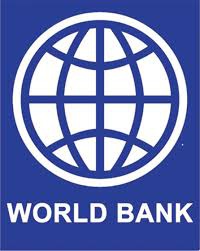Mr Santiago Herrera, outgoing Lead Economist for Ghana at the World Bank Group, has suggested an increase in the productivity of the public sector if the country is to achieve macro-economic stability and growth.
Speaking to journalists in Accra on Monday, Mr Herrera raised the issue of public productivity – the second of two thematic areas in a development policy of the World Bank Group (WBG) expected to enhance Ghana’s macro-economic stability, economic growth and competitiveness.
He pointed out that productivity-based growth is a more sustainable strategy for Ghana because of the current fiscal deficit and the country’s low level of private savings, which he said cannot finance the investment needed to sustain economic growth at seven to eight per cent.
“If the investment level needed to sustain growth is not sustainable then the other option is to have a productivity-based growth”, he said.
Mr Herrera also noted that Ghana’s drift from concessional financing to market financing as a result of the achievement of lower middle income status, is increasing the marginal cost of borrowing.
“If the cost of borrowing for the government is going up, then the productivity of public capital has to go up otherwise debt is not sustainable”, he said.
Remedial measures for public productivity in the WBG’s development policy include the establishment of a single agency for the financial oversight of state owned enterprises (SOEs), governance and performance assessments of SOEs and regulators, and timely publication of audited financial statements and investment programmes of the Ghana National Petroleum Company.
Others are cabinet approval of a public investment management policy, approval of best-practice principles for the governance of the Ghana Infrastructure Investment Fund .
The outgoing Lead Economist also noted that public productivity is positively associated with the rule of law and better state institutions.
Whilst by the WBG’s indicators Ghana’s performance in governance is better than countries in the lower middle income stratum, progress had stalled along those governance indicators (voice and accountability, political stability and absence of violence/terrorism, government effectiveness, regulatory quality, rule of law, and control of corruption).
The risk rating of the development policy also stands high as the WBG projects possible slippages in the implementation of the IMF programme, a possible worsening of the energy crisis, liquidity risk from the short term nature of public debt and the 2016 general election which could delay long term plans.
Click to view details



Business News of Wednesday, 5 August 2015
Source: GNA
Improve public sector productivity – World Bank
 World Bank logo
World Bank logo
Entertainment















